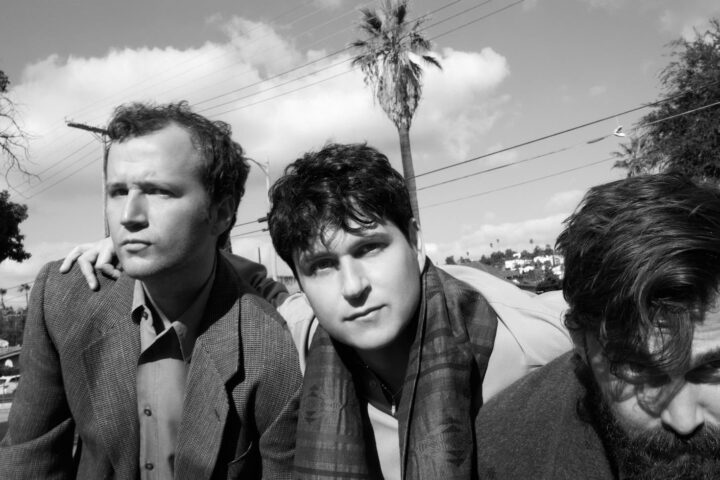“A La Sala” serves as both an album title and statement of purpose for Khruangbin’s fourth studio album. As a child, bassist Laura Lee Ochoa used to scream the phrase, which means “To the room,” in order to rally her family together in the living room. Now, for Khruangbin, it signifies a return to a place close to where they began.
The band’s last two releases, 2020’s Texas Sun and 2022’s Ali, were collaborations with Leon Bridges and Vieux Farka Touré, respectively. Together with 2020’s Mordechai, which saw the predominantly instrumental band adding lyrics to their music to great effect, those projects found them evolving their sound and expanding their songcraft.
A La Sala, though, adopts a more back-to-basics approach, and from a production standpoint, it pays off. This is the cleanest that Khruangbin as a trio has ever sounded. Drummer Donald “DJ” Johnson serves as the backbone, keeping the rest of the band aligned through lean, precise percussion, while Ochoa’s bass sits at the center of the mix, imbuing the songs with a driving lifeforce. Guitarist Mark Speer’s melodic noodling acts as the de facto “voice” of the band.
Yet apart from a few key songs that continue down the lyrical path charted on Mordechai, A La Sala is largely a retread of Khruangbin’s idiosyncratic brand of dubby psychedelia. Among the outliers is “May Ninth,” in which the band tops off a drifting, dreamy guitar line with a vocal that provides an added emotional depth that the instrumental numbers sometimes fall short of. Similarly, “Todavía Viva” and “Hold Me Up (Thank You)” are low-key, bass-forward funk jams that are given added dimension with a soft synth pad and, on the latter, a memorably sweet vocal hook (“Thank your friend, thank your lover, thank your sister, thank your brother).
Outside of these standout tracks, though, A La Sala struggles to captivate the way past Khruangbin releases have. With its punctuated interjections, “Juegos y Nubes” pays homage to psych-funk forebears Cortex’s “Sabbat” suite but otherwise slips into a familiar formula. “Pon Pón” likewise struggles to stand apart despite a pulsing effort from Johnson’s kick drum, while “Three from Two” feels more cruise ship lounge than luau.
The moments where Khraungbin does attempt something new on A La Sala—the quietly understated interludes of “Farolim de Felgueiras” and “Caja de la Sala”—float by too quickly and mostly serve as vibe music. Closing track “Les Petits Gris” is the exception to this rule: Its minimal, entrancing piano chords evoke a mysterious, liminal state of melancholy. It’s here that Khraungbin succeeds at saying something new without having to say anything at all.
Since 2001, we've brought you uncompromising, candid takes on the world of film, music, television, video games, theater, and more. Independently owned and operated publications like Slant have been hit hard in recent years, but we’re committed to keeping our content free and accessible—meaning no paywalls or fees.
If you like what we do, please consider subscribing to our Patreon or making a donation.



